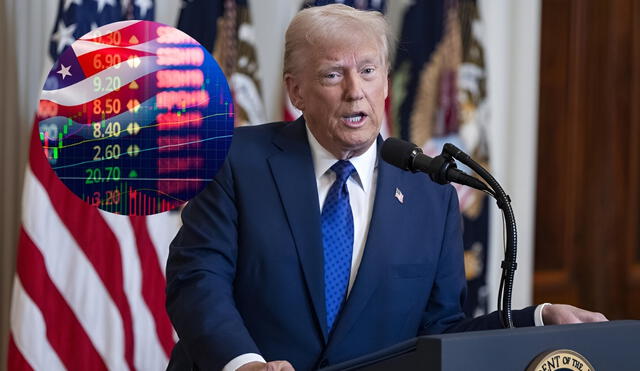Trump announces 90-day tariff suspension for select countries
As Trump hits pause on global tariffs but targets China with a sharp hike, markets rally — yet a fierce response from Beijing signals the trade war is far from over. What’s the real cost of this economic chess game?

President Donald Trump announced a 90-day pause on new tariffs for most countries, lowering the general tariff rate to 10%. However, tariffs on Chinese imports were sharply increased to 125%, signaling a targeted escalation in the U.S.-China trade conflict. The announcement caused a 7% surge in the S&P 500, though details about the revised tariff framework for other nations remain unclear. The move appeared to be part of a broader strategic shift in U.S. trade policy. Investors reacted quickly to the partial de-escalation.

ALSO SEE: Ed Sheeran opens up about his friendship with Taylor Swift: "We see each other four times a year"
Trump's tariff pause eases market tensions amid global trade negotiation interest and economic uncertainty
Trump explained the pause by pointing to growing interest from over 75 countries in negotiating trade agreements. While his administration framed it as a calculated tactic to improve the U.S. bargaining position, underlying economic pressures likely played a role. Falling Treasury bond prices and growing fears of a recession may have influenced the decision. The timing raised questions about the administration’s long-term trade strategy. Still, the move was seen by many as a relief to global markets.
Financial markets responded positively to the announcement. Tesla shares, for example, surged 14% after Trump’s decision to pause reciprocal tariffs (excluding China) and reduce the overall rate. Elon Musk, however, remains a vocal critic of tariffs, saying they damage demand and profitability by raising production costs. His comments reflect concerns among major exporters. The automotive and tech industries are particularly sensitive to trade shifts.
China strikes back with tariff hike as Trump’s trade strategy fuels U.S.-China economic Tensions
In response to the tariff hike, China retaliated by raising tariffs on U.S. imports from 34% to 84%. This escalation underscores the fragile and contentious state of U.S.-China economic relations. It also raises doubts about whether Trump’s hardline approach will lead to meaningful progress. The Chinese government called the move “aggressive and unjustified.” The tariff battle risks further destabilizing the global economy.
In summary, Trump’s decision to temporarily suspend tariffs for most countries while increasing pressure on China reflects a complex balancing act. He aims to maintain leverage in trade talks while easing broader economic tensions. However, China’s sharp response and lingering market uncertainties suggest global trade conflicts are far from over. The situation remains fluid and unpredictable. Much will depend on future negotiations and geopolitical shifts.











